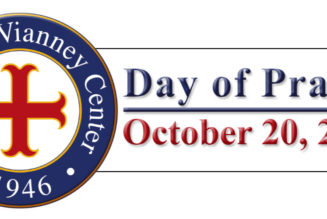By Dr. Jeff Mirus ( bio – articles – email ) | Feb 20, 2024
St. Paul makes a heartfelt plea to the Corinthians in his second letter: “We entreat you not to accept the grace of God in vain” (2 Cor 6:1). Per usual, I have generally thought of this admonition as applying to “other people”, especially those who have heard the Gospel but not accepted it, or those Catholics who know what the Church teaches, but refuse to change their own ideas and behavior based on that teaching. But in reality, Paul’s entreaty is directed at all of us—indeed, at all of us all of the time.
Another great quotation—not Scriptural but firmly rooted in the Patristic tradition—is St. Augustine’s exclamation: “Late have I loved you, O Beauty ever ancient, ever new.” He was, of course, reflecting back on all the time he frittered away avoiding conversion to Christ:
Late have I loved you, O Beauty ever ancient, ever new, late have I loved you! You were within me, but I was outside, and it was there that I searched for you. In my unloveliness I plunged into the lovely things which you created. You were with me, but I was not with you. Created things kept me from you; yet if they had not been in you they would have not been at all. You called, you shouted, and you broke through my deafness. You flashed, you shone, and you dispelled my blindness. You breathed your fragrance on me; I drew in breath and now I pant for you. I have tasted you, now I hunger and thirst for more. You touched me, and I burned for your peace.
Augustine wrote this in his famous autobiography, The Confessions—which, by the way, makes excellent Lenten reading. In his defense, I would point out that once he converted to Catholicism, he certainly did not accept the sacramental grace of God in vain. But he was well aware of how many other kinds of grace he had squandered prior to that point, and how even his fleshly attachments had induced him to waste so many of the graces that had been won for him by his mother’s (St. Monica’s) prayers.
Even after we admit the truth of Christ and begin to pay attention to him in His Church, I am sure that most of us squander at least some of the graces we receive. Therefore, St. Paul’s plea, “We entreat you not to accept the grace of God in vain”, becomes a wonderful point for meditation during Lent.
In the proverbial rut
One of the paradoxes of the spiritual life is that the more we grow in Christ, the more sensitive we become to the squandering of grace in our own lives. I admit that it is impossible to measure the graces we receive (or squander) at any given moment in our lives, but as we grow in grace (which is a share in God’s very life) we become increasingly aware of the meagerness of our response. This in itself becomes an incentive to rely on God’s love rather than our own strength, but at the same time, if we are serious, we can hardly avoid examining our own consciences.
In any case, we must believe that the sacramental graces we receive within the Church herself are uniquely powerful in their actuation of the life of Christ within is—that is, of holiness. It is these graces above all others, beginning with the stupendous grace of baptism, that allows us to say (again with St. Paul): “I have been crucified with Christ; it is no longer I who live, but Christ who lives in me, and the life I now live in the flesh I live by faith in the Son of God, who loved me and gave Himself for me” (Gal 2:20). For this is what Baptism itself does: It incorporates us into the life, death, and resurrection of Christ, joining us to His own mystical body, the Church.
Certainly the sacraments of initiation into Christ and the Church are uniquely powerful—Baptism, Penance, Eucharist, and Confirmation. Those of us who enter into a sacramental vocation—Matrimony or Holy Orders—receive additional and immensely powerful graces tailored to our particular state in life. And though it is rather easier (or so I think) to take Anointing of the Sick for granted—since the time we have on this earth to appreciate it is typically so brief—it is unlikely that anyone who had really striven to make the most of the other sacraments would volunteer to skip what is usually the last one.
And yet we very often take the sacraments of the Church for granted, along with many of the other graces we receive. Or at least we may not ask ourselves frequently enough whether we have kept our share of grace hidden away somewhere until the Lord’s return, rather than working to multiply its effects in us day by day (per the parable of the talents).
A Lenten task
We often think of Lent—and are even more often reminded to think of Lent—in terms of the three T’s—Time, Talent, and Treasure; or perhaps (and in my own mind just as good) in terms of specific sacrifices we will make by way of spiritual discipline. And certainly what we do under the headings of Time, Talent, and Treasure is supposed to be sacrificial. The point of these Lenten exercises is not really to do something for somebody else once a year, but rather to stretch ourselves in ways that open us to an ever-larger share of God’s life of grace, so that we exit the Season living more fully in Christ than when we began.
Indeed, the point of the Season of Lent is to call attention to the regular need to take stock and to discipline ourselves toward a deeper immersion in the life of Christ so that we will be further transformed year by year in Christ’s holiness. In the final analysis, this is what it means to welcome Christ’s Resurrection. Some have referred to this as “an annual tune up”, but if we come out of Lent running only as well as we were when we emerged from last year’s Lent—or the one before that, or the one before that—then we haven’t quite captured the spirit of the Season.
One way to make progress, I think, is to reflect on the graces we’ve squandered, not so that we can feel horrible all over again for sins we have already confessed, but in order to see more clearly the ways we typically fail to live in and through the sacramental graces which are supposed to continually transform our lives in Christ, making them increasingly fit for both universal and particular ends which are fully consonant with our states in life and our vocations. This at least opens us to deeper changes than may be accomplished merely by “giving up something for Lent” or “doing more for others or the Church during Lent”. Certainly these are excellent practices; they are even preparatory practices to something more. But if all we can say after Lent is that we did something a little differently for six weeks, then we have not taken full advantage of either the Season or the Christian life.
Most people who have taken their life in Christ seriously for many years are not going to make startling new discoveries in Lent. But little steps to more perfectly live one’s vocation or state in life—even if they take years to grow into a dramatic change—are far more than we usually get out of Lent if we simply treat it as a relatively trivial and temporary penitential routine.
Lenten drama
When Our Lord entered Jerusalem in his final year on earth, He wept. Indeed, He said that disaster would befall the city because “you did not know the time of your visitation” (Lk 19:41-44). This is the same trouble that underlies our own failures to recognize the time of our visitation and to seize each opportunity to live more fully in Christ. It isn’t so much about when we feel “ready”, but when He is calling. The essence of Lent is to remind us of the crucial importance of now.
With this in mind, here is the full quotation of which I presented only a part when I began:
Working together with him, then, we entreat you not to accept the grace of God in vain. For he says, “At the acceptable time I have listened to you, and helped you on the day of salvation.” Behold, now is the acceptable time; behold, now is the day of salvation.
Lent by Lent, we all have a tendency to lose our sense of urgency. And truly, even if we regain it, we may not be led to dramatic changes. But it remains always a good start to recognize that this quotation, about now being the acceptable time, is far easier to say than to do. It is far easier to quote than to live. Nonetheless, Lent is the time in which we are called once again to feel the unapologetic urgency of the grace of God.
Sound Off! CatholicCulture.org supporters weigh in.
All comments are moderated. To lighten our editing burden, only current donors are allowed to Sound Off. If you are a current donor, log in to see the comment form; otherwise please support our work, and Sound Off!

There are no comments yet for this item.










